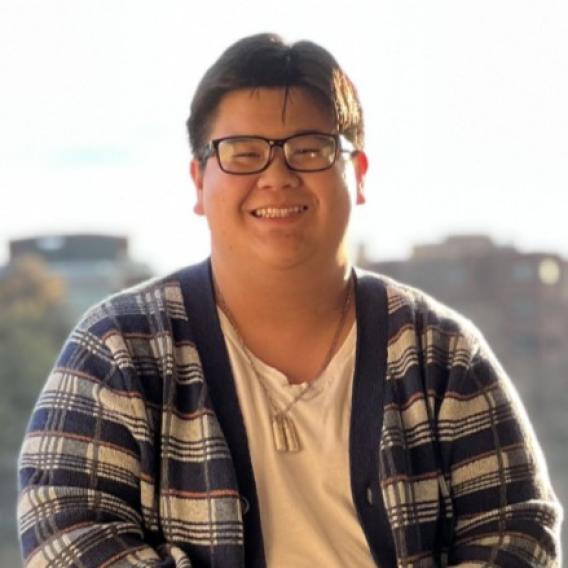Earn an undergraduate degree that prepares you to work with youth
Admissions requirements
To earn a Bachelor of Science with a major in Youth Studies, undergraduate students enrolled at the University of Minnesota must complete YOST 1001 - Seeing Youth, Thinking Youth: Media, Popular Media, and Scholarship (3 Cr.) Civic Life and Ethics, Online may be available.
Contact
Academic Advisor
What jobs can I do with a youth studies degree?
Youth workers are in high demand and have plenty of growth and leadership opportunities! Below are common jobs as categorized by O*Net, a free online database sponsored by the U.S. Department of Labor/Employment and Training Administration (USDOL/ETA). We also suggest searching on the Minnesota Council of Nonprofits Job Board and typing in “youth” for a broader picture of youth work opportunities.
- Social and Community Service Assistants
- Social and Community Service Managers
- Mental Health/Psychiatric Aides
- Education and Childcare Administrators, Preschool and Daycare
- Religious Activities Director
- Recreation Workers
Some careers working with youth require a master's degree. These include:
- Child, Family, and School Social Workers
- Educational, Guidance, and Career Counselors and Advisors
- Mental Health Counselors
For more information:
Why Youth Studies?
Earning an undergraduate career is more than passing classes and getting good grades. You're also learning the skills you will need in the workplace as a professional. In the Youth Studies program at the UMN School of Social Work, you will:
- Learn the history of how youth are treated in society, and what this means for their learning and growth
- Develop skills to keep young people engaged with learning programs
- Understand appropriate boundaries, and how to connect youth with help in a crisis
- Build a firm foundation for interpersonal communication and youth development
- Master skills and gain insights that will benefit careers in both education and social work
The Youth Studies Undergraduate major requires 120 credits to graduate.
The minimum number of program credits to graduate is 60 credits.
For the most current cost per credit for undergraduate studies at the University of Minnesota, we well as information about fees and cost of attendance, visit OneStop Services, Twin Cities.
Scholarships and Awards
Undergraduates pursuing a Youth Studies Major can find academic scholarships available to all University students, as well as scholarships specific to the College of Education and Human Development.
Grants for Eligible, Enrolled Students
Find information on federal, state and University grants available to undergraduates on Twin Cities One Stop Student Services
Financial Aid
The University of Minnesota offers financial aid packages to undergraduate students. See information about financial aid, including how to apply, on the OneStop Student Services website.
Quote from Chufue Lo, BS in Youth Studies '26

Being a part of social work and youth studies has really shifted my perspective from viewing things in a deficit based lens, where I was constantly asking "What's missing?" or "What don't they have?", and now view things in an asset based lens where I'm able to work with young people and they're able to brainstorm ideas on how they can support their communities.
What you'll study
What would your class schedule be like if you were a Youth Studies major?
See a sample academic plan for the Bachelor of Science in Youth Studies.
*Note: This plan is an example only. You’ll work with your advisor to develop a course schedule specific to your needs
In addition to the common content courses required for the Youth Studies Major, the required courses are:
- YOST 1001 Seeing Youth, Thinking Youth: Media, Popular Media, and Scholarship
- FSOS 1461 Presentations at Work: Families, Communities, Nonprofits, and Schools (Preferred Course)
- EPSY 1261 Understanding Data Stories through Visualization & Computing
- YOST 2241 Experiential Learning
- YOST 2101 Urban Youth and Youth Issues
- YOST 3325W Project-Based Writing For Education and Human Development Majors (Preferred Course)
- YOST 3032 Adolescent and Youth Development for Youthworkers
- YOST 4315 Youthwork in Schools
- YOST 4401W Writing Intensive - Upper Division (Recommend Young People's Spirituality and Youthwork)
- YOST 4325 Improving Everyday Youthwork: Practical Program Evaluation (Preferred Course)
- YOST 3001 Introduction to History & Philosophy of Youthwork
- YOST 3101 Youthwork: Orientations and Approaches
- YOST 4196 Youthwork Internship
- YOST 4301 Communicating With Adolescents About Sexuality
- YOST 4411 Youth Research and Youth Program Evaluation
- YOST 4314 Theater Activities in Youthwork and Education
In addition to the required courses for the Youth Studies major, these are the common content courses required to earn a BS in Youth Studies:
- FSOS 1211 An Interdisciplinary Look at the Family in Multicultural America
- EPSY 1281 Psychological Science Applied
- EDHD 1525W CEHD First Year Experience (Preferred Course)
- LE Technology and Society
- LE Writing Intensive - lower division
- LE Arts/Humanities (CEHD recommends CI 1032)
- LE Physical Sciences
- LE Literature
- LE Biological Sciences
- LE Writing Intensive - Lower Division (CEHD recommends YOST 1368W)
- LE Environment
- 6 Elective courses
The Youth Studies degree is also a pathway to becoming a licensed 5-12 Social Studies teacher through the DirecTrack to Teaching program.
For questions please contact Jehanne Beaton, DirecTrack to Education Coordinator or Rae Dillon, Youth Studies Academic Advisor.
What our students say
In the Youth Studies undergraduate program at the School of Social Work, we teach beyond the classroom--ensuring that the facts, frameworks, and ideas that we present are learned by our students in a way that allows them to practice what we teach.
Questions about the BS in Youth Studies?
Contact Rae Dillon, Academic Advisor